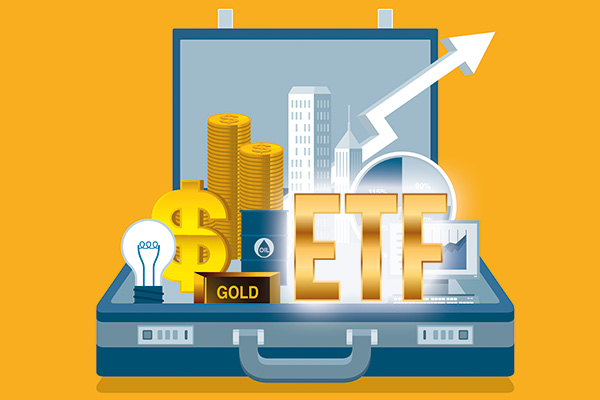One in 10 ETFs change their index – does it matter?
The findings are a reminder that passive funds and ETFs should not be viewed as ‘buy and forget’.
19th February 2021 10:29
by Tom Bailey from interactive investor
The findings are a reminder that passive funds and ETFs should not be viewed as ‘buy and forget’.

More than one in 10 exchange-traded funds (ETFs) have changed the index they track, according to data from Trackinsight, the Financial Times has reported. The data showed those that did change their benchmark did so after around five years.
Trackinsight looked at the roughly 7,000 ETFs that have launched since the fund structure was invented in the 1990s, including those that have since been closed. The data company screened these ETFs for evidence of a change to their benchmark.
The results showed that approximately 11% of ETFs changed their index over their lifetime. Of those that did change their index at some point, on average they did so 5.6 years after launching.
These numbers should remind investors to pay attention to any updates regarding the ETFs they own. Most ETFs passively track an index, whose returns they aim to match, minus fees. Which index an ETF tracks, therefore, is the primary determinant of the returns of most ETFs.
- The cheapest ETFs to track global markets at the start of 2021
- Three reasons not to use the Dow Jones index
- Diversifying your portfolio is easy with these ii Super 60 recommended funds
It also serves to remind investors that while ETFs are pitched as products to ‘buy and forget’, these investments still require their attention, not least in case the ETFs they own change their index.
Does it matter if an ETF changes index?
For the most part, investors should not be too concerned about index changes. Responsible ETF providers are unlikely to make dramatic changes to the index they track. If an ETF provider changes the index it tracks, usually it will choose one that offers the same asset class exposure.
Different index providers offer exposure to the same asset class in slightly different ways due to different methodologies. The ETF provider will have changed index because either they think the new index provides a better exposure to that asset class, or the new index provider is offering lower fees which, in theory, will be passed on to the investor.
One of the most notable switches was Vanguard’s change from MSCI to FTSE in the early 2010s. Due to FTSE offering lower fees, Vanguard switched the benchmark of several of its funds, representing hundreds of billions of dollars.
Vanguard’s emerging market funds switched from tracking the MSCI Emerging Market index to the FTSE Emerging index. This has had some impact on returns because of FTSE’s decision to categorise South Korea as a developed rather than emerging market, as we noted here.
However, when it comes to most major asset classes, the difference between indices are usually minimal over the long term.
Should investors sell their ETF if it changes its index?
If your ETF changes index, you should consider how active you want your investment approach to be. If an investor changes the ETF they own because of an index change they are taking a view on the stocks in the index. Favouring the MSCI index over the FTSE for emerging market exposure, for example, would suggest the investor has a positive view of South Korean stocks compared to other emerging market stocks.
- The best ETFs to access China’s exciting tech industry
- Tom Bailey Column: Dax 30 rule changes get only two cheers
- Take control of your retirement planning with our award-winning, low-cost Self-Invested Personal Pension (SIPP)
That may be the correct view, or it may be the wrong view. Either way, it is an attempt by the investor to decide which specific stocks to increase or decrease exposure to. If the investor does not have a strong view either way, they may be better just accepting whatever exposure their ETF gives them.
For the most part, investors own broad market ETFs for the asset class exposure it gives them, and do not care so much about the specific index and its methodology. If that’s the case, there is little reason to change.
When it comes to thematic or factor ETFs, index changes do have the potential to result in quite different returns. Largely this is because there will be less of a consensus on how to capture exposure to the theme or factor in question, meaning indices will be quite different. You can already see this in the often very wide dispersion of returns among ETFs ostensibly offering exposure to the same theme.
Again, the investor should ask themselves if they feel they can judge which index methodology is the best way to capture the theme or factor.
These articles are provided for information purposes only. Occasionally, an opinion about whether to buy or sell a specific investment may be provided by third parties. The content is not intended to be a personal recommendation to buy or sell any financial instrument or product, or to adopt any investment strategy as it is not provided based on an assessment of your investing knowledge and experience, your financial situation or your investment objectives. The value of your investments, and the income derived from them, may go down as well as up. You may not get back all the money that you invest. The investments referred to in this article may not be suitable for all investors, and if in doubt, an investor should seek advice from a qualified investment adviser.
Full performance can be found on the company or index summary page on the interactive investor website. Simply click on the company's or index name highlighted in the article.